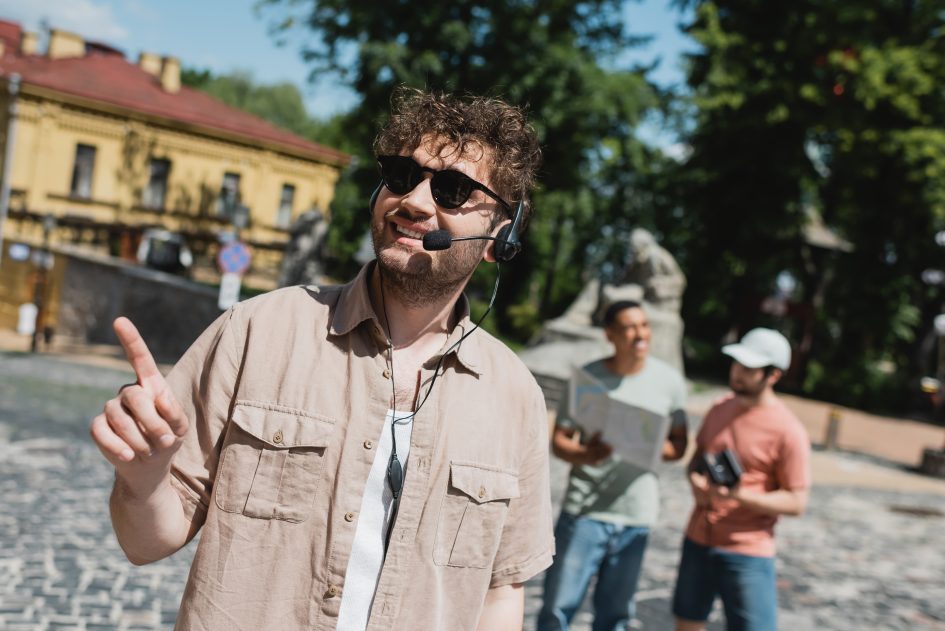The United Kingdom is stuffed to the gills with truly fascinating history, ranging from war relics and industrial revolution artefacts to modern media landscapes and so much more. Tourism accounted for $58 billion in economic output in 2024, and with the UK’s storied past, it’s no surprise. If you’re looking to engage with the tourism industry more directly, whether for international or domestic visitors, you might wonder how to become a tour guide yourself.
This blog offers insights into how you can make your start in tour guiding, with advice ranging from building your expertise to getting the right audio guide equipment.
Setting your goals & doing your research
The most important thing to start with is figuring out where you want to do your tours, why and how to do them properly. Every city and town in the UK (and beyond) has a unique history – what is it that you want to show people? Take the time to do plenty of research and channel the passion that guided your ambition in the first place.
Similarly, it’s important to build competence in skills like:
- Public speaking and communication
- On-your-feet problem solving (weather, tourists and more can be hard to predict)
- General people skills and friendliness
Covering your qualifications
Tour guide jobs are not protected by specific legal licenses, meaning you can technically start a business and offer tours from the ground up. However, some qualifications and considerations can aid in the pursuit of success.
ITG Accreditation
The Institute of Tourist Guiding offers formal qualifications that can offer real advantages for people in tour guide positions, both in terms of reputation and professionalism. Namely, their “Badge” system.
- Blue Badges are the highest level of qualification, trained to work across an entire region or major city, leading tours on foot, by coach or in specific sites.
- Green Badges are qualifications for guiding in a specific town, city or defined area, focused primarily on walking tours.
- White Badge offers a qualification for a single, specific site, like a museum, war ruin site or place of worship.
Yes, you can become a tour guide with a Google Ad and some notes on your home town, but these marks of quality also denote training and access for various topics and sites. They’re essential for those who want to engage in a more established form of tour guiding or work in more traditional settings.
Legal considerations
While there are no specific tour guiding licenses, there are still plenty of legal elements to consider as you would when running any sort of business.
- Registering as a sole trader, partnership or limited company
- Securing public liability insurance
- Setting up any waivers, contracts or other documents
- Licenses for any specific tour-based activities
- Street trading license if you plan on selling tickets on the street
- PHV regulations and insurance for driving tours
- General consumer protection laws
Getting started (with the right equipment)
If you’re tired of wondering how to become a tour guide, just get started! There are multiple channels for tour guiding, including directly applying to museums and companies, freelancing your own tours or even volunteering for experience.
If you’re running your own business, you need the right equipment, including a good audio guidance system. If you’re looking to fully equip your business with everything from microphones to transmitters, visit Tour Guide Systems. We offer all the technology necessary to facilitate expert tours, big and small.

